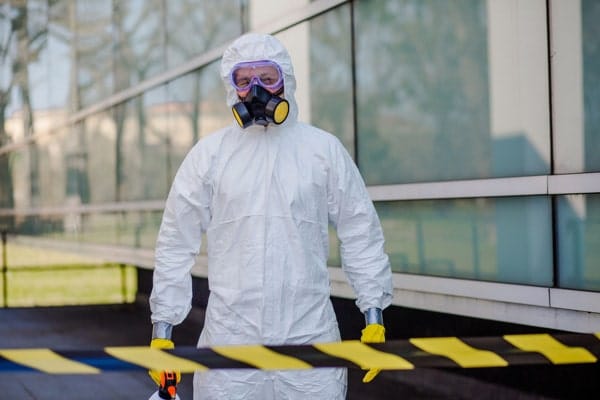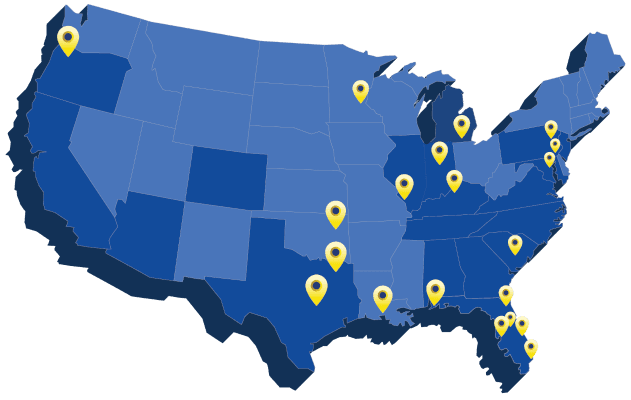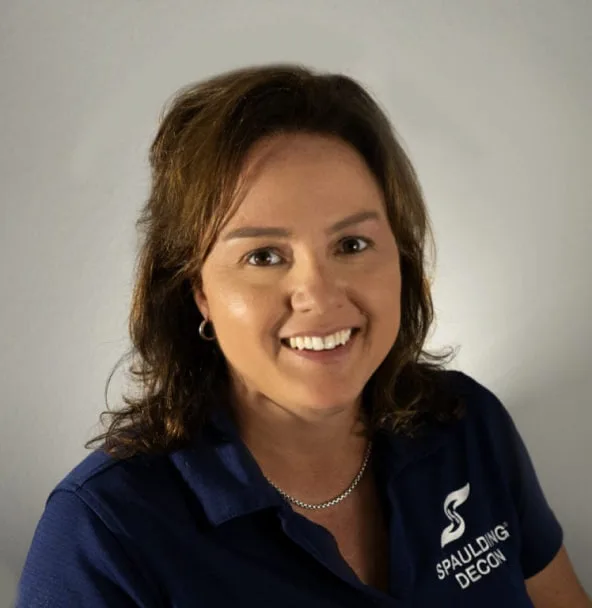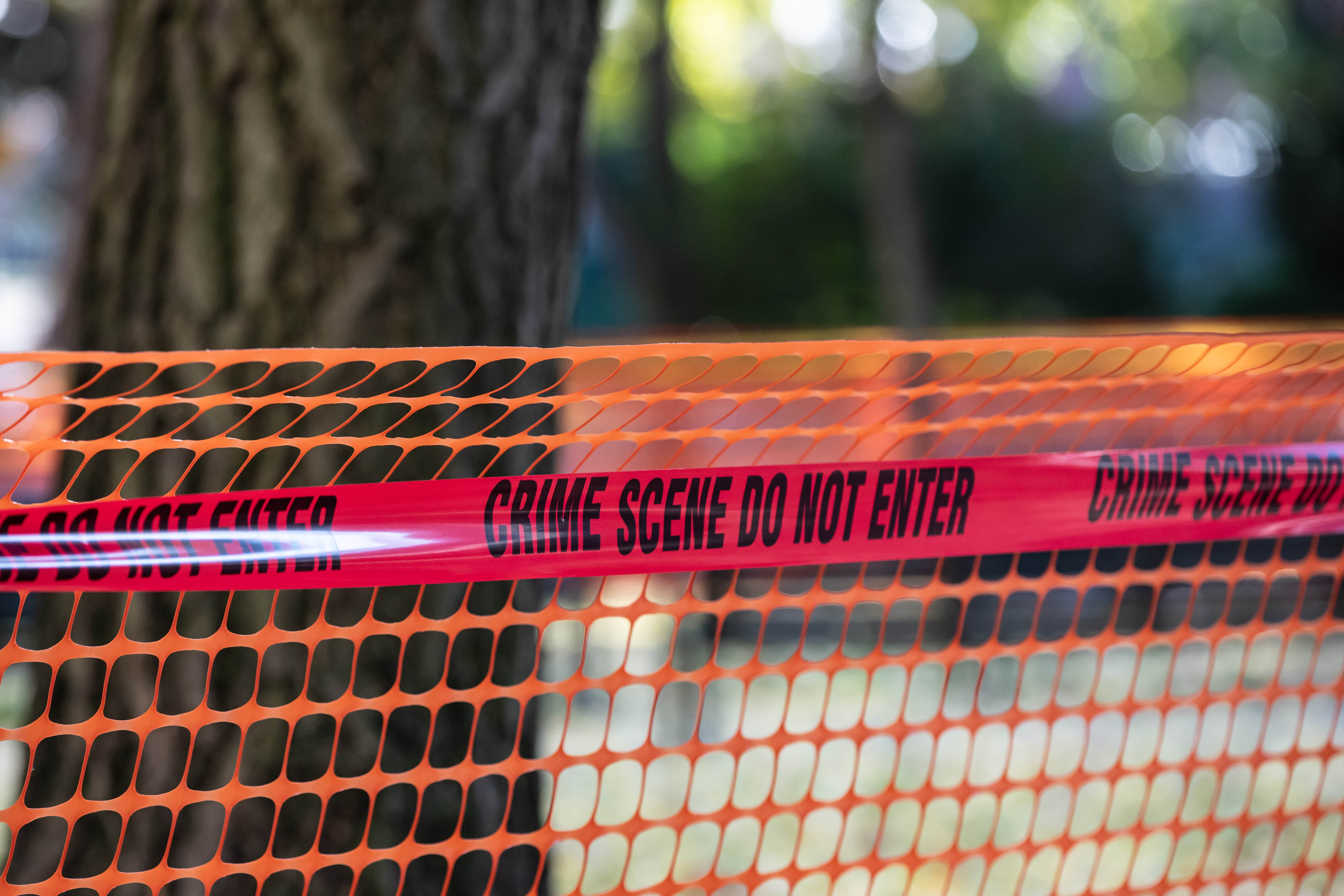Crime Scene Cleaning as a Career
Are you interested in pursuing forensic jobs? Are you prepared to handle the challenging realities of biohazard remediation, which includes working with blood and other biological materials? Crime scene cleaners are always in need and this is an excellent way to begin a career in this vital field.
While crime rates fluctuate, the demand for professional biohazard cleanup is steady and growing. This is driven by a range of unfortunate events including unattended deaths and accidents, as well as a greater public awareness of the risks associated with biohazards. That’s why biohazard cleanup services apply to accidental deaths as well.
After a crime scene, professionals need to clean and disinfect the area to eliminate all traces. In this article, we cover how to become a crime scene cleaner, including the necessary skills, qualifications, and training you’ll need. In addition, we discuss some facts about the job to ensure it’s the right gig for you.
Looking to start a career in crime scene cleaning? Check out our online training courses to get certified today!
The Rise of Specialization in Biohazard Remediation
While the term ‘crime scene cleaner’ is the most commonly used phrase, the bio-recovery industry is growing beyond traditional crime scenes. In 2025, technicians are increasingly called in for specialized situations, opening up diverse career paths. Training in some of the following areas can make you a candidate that’s more attractive to employers:
- Infectious disease decontamination: A field that has grown significantly due to heightened public health awareness. This involves protocols for sanitizing spaces exposed to pathogens.
- Hoarding and squalor cleanup: These often involve significant biohazard risks (e.g., waste, mold, pests) and require a unique combination of cleaning and emotional intelligence skills such as compassion.
- Unattended death scenes: A frequent and challenging part of the job that requires specific remediation processes.
- Vehicle and industrial accident cleanup: Specialized services for cleaning vehicles or workplace machinery after traumatic events.
- Fentanyl and opioid remediation: Safely neutralizing potent synthetic opioids requires specific training and advanced PPE protocols. There are also strict controls to avoid aerosolization. Many teams train on naloxone and follow NIOSH/DEA guidance.
Technology Transforming the Trade
The days of just a mop and bucket are long gone and cleaning is no longer just about scrubbing. The industry in 2025 utilizes advanced technology to improve safety and efficiency. New cleaners should expect to be trained on
This modern, tech-informed profession will require training on:
- Advanced disinfection tech: This may include electrostatic sprayers (ESS) that provide uniform coverage of EPA-registered disinfectants and UV-C light systems (with safety controls) for chemical-free pathogen neutralization.
- Digital documentation: Using mobile apps and software to document cleanup progress, verify compliance with safety standards, and provide clients with real-time updates and detailed reports. These are often aligned to S540 documentation practices.
- Atmospheric and surface testing: Employing tools like ATP (adenosine triphosphate) testers to verify surfaces are hygienically clean after remediation.
Verification tools: ATP/protein testing as one objective method (used alongside visual checks and, when needed, microbiology).
Are You Suitable for the Job?
Before you start enrolling in school and train for the position, here are the basics involved in a crime scene cleaner’s job. Reading these will help you ensure you’re comfortable working in this environment.
1. Long Hours of Physical Labor
The crime scene cleaner role is different from the regular cleaning job. On average, you can expect to spend 9-10 hours cleaning one site. The role also often involves heavy physical labor, which is why most companies require you to be able to lift at least 50 pounds with ease.
Keep in mind, not every crime scene is extremely labor intense. Most tasks will consist of cleaning carpets, scrubbing walls, cleaning furniture, and airing out strong smells. It’s essential that you understand that you’ll likely be cleaning blood, body parts, and possibly other foul bodily fluids.
The goal of a crime scene cleaner is to make the crime scene look impeccable so people can live and work in that location/property again.
2. Work Around Blood and Biohazard Waste
As a crime scene cleaner, you will be handling blood, dead bodies, body parts, and even human waste. While crime scenes vary, they are not only messy but likely reek of decomposition.
Keep in mind, you may feel sick when you first start the job. That is completely normal. As you get used to the job, you’ll be able to control your nausea better.
You can also find ways to suppress any sickness from arising before you start cleaning. In addition, most become desensitized to the job after some time. For example, if strong smells bother you, you’ll likely become used to them after several months.
3. Emotional Toll
The emotional toll of this work, such as seeing dead bodies and other crimes firsthand, is real. It can be worse than the blood and guts. As humans, we naturally empathize with others. Looking at dead bodies or human remains will make some feel extreme sadness.
While it’s important to not dehumanize the victims, crime scene cleaners have a job to do. This means you need to control your emotions on the job. It’s recommended you speak to a therapist regularly to build emotional resilience. Your employer can help you with this through:
- Peer support systems/CISM debriefs: Many companies foster environments where technicians can debrief with colleagues who understand the unique pressures of the job.
- Emotional resilience training: Some employers now offer formal training that includes mindfulness, stress-reduction and recovery techniques, and strategies for emotional regulation.
Regular mental health check-ins: Access to counseling and therapy is becoming a standard part of employee support, not just something to seek out after a difficult job.
4. Work Irregular Hours
Crimes can occur at any hour of the day. In addition, the police and CSI may not get to the site immediately. But once the evidence is collected, the scene needs a thorough cleaning. Most crime scene cleaners don’t work a set schedule. This means you’ll have to be available on-call at all hours of the day and need to be able to show up to work at a moment’s notice.
Before choosing this job, make sure you can adjust to an unpredictable schedule. For example, if you have children, you’ll need to make sure you have specific arrangements for their care in case you’re called in.
Training & Certifications
After reading these intricacies of the job and you still think being a crime scene cleaner is the right job for you, you’ll first need to earn the necessary credentials. Here’s how to train properly;
Necessary Certifications
There are regulations and restrictions on crime scene cleaning, which means you’ll need to earn specific certifications before cleaning a crime scene. These certifications include crime scene cleaning as well as handling blood-borne pathogens and bio-recovery. Keep in mind that the certifications you earn and hold will depend on where you live. While the US follows the OSHA guidelines training requirements, crime scene cleanup training varies with each state.
Additionally, while requirements vary by state, the industry is professionalizing around key standards. Instead of just ‘certifications,’ aspiring cleaners in 2025 should look for training aligned with:
- Industry-recognized standards: Examples include the ANSI/IICRC S540 Standard for Trauma and Crime Scene Cleanup. Certifications like the IICRC’s Trauma and Crime Scene Technician (TCST) are becoming a benchmark.
- Specialized knowledge: Training now often includes modules on bloodborne pathogens (per OSHA regulations such as 29 CFR 1910.1030), hazardous waste disposal, and chemical safety. To avoid exposure to bloodborne pathogens, you may also be required to take a Hepatitis B vaccination after training and within 10 working days. The OSHA Respiratory Protection (29 CFR 1910.134) requires medical clearance, fit testing, and a written program.
Virtual reality (VR) training: Forward-thinking companies are beginning to use VR simulations to allow technicians to practice complex procedures in a safe, controlled environment before facing a real scene.
Additional Training
You may also need additional training, which means you’ll have to pass specific courses. These courses may include heat-illness awareness, hazardous communication, and medical waste handling. In addition, all employers require that their employees complete specific training before they’re hired.
Using PPE and Respiratory Protection
Since you’ll deal with foul smells, human waste, and potentially dangerous substances, all crime scene cleaners need to wear personal protective equipment (PPE) and wear specific equipment to enable easier breathing. This is non-negotiable.
Most crime scene cleaners wear a Hazmat suit, but your employers may require different or additional equipment. In 2025, this gear is more sophisticated and is lighter and made of breathable materials that still offer robust protection.
For advanced respiratory protection, you may have to wear N95 masks or full-face respirators. Additional options may include powered air-purifying respirators (PAPRs) for high-risk environments.
Furthermore, proper training includes ensuring respirators have a correct seal to be effective, which is a standard practice in the field.
You’ll have to go through training to properly use the equipment. Your employer will provide this training, but it’s recommended you do some research on your own.
The Growing Importance of ‘Soft Skills’
Beyond a strong stomach, success in this field in 2025 requires well-developed interpersonal skills. Even though the job is highly technical, the human element is paramount. Technicians are often the first to interact with families after a tragedy.
Key skills include:
- Compassion and discretion: Interacting with grieving family members, property owners, and officials with sensitivity.
- Clear communication: Explaining the remediation process, setting expectations, and answering questions from distressed clients.
Professionalism under pressure: Maintaining composure and a methodical approach in chaotic and emotionally charged environments.
Tips: Finding a Job in Crime Scene Cleaning

Most employers cover specific training materials for you. However, you’ll at least need to be certified before finding crime scene cleaner jobs. After you finish your training and earn your certifications, it’s time to find a job!
Knowing these tips will help you get hired:
- Write an effective resume that lists your certifications, skills, qualifications, and related experience
- If you worked in construction or cleaning previously, you’ll have a better chance of getting hired
- Pass a background and drug test
- Find emergency cleaning companies that specifically handle crime scene and biohazard cleaning
After finding a job, you should also look into therapy or a support group. Even if you don’t think you’ll need it, many crime scene cleaners find the emotional toll worse than the mess. Have a therapist’s or support group’s contact information for when you’re ready.
Curious to learn more about the important work behind crime scene cleanup? Check out our in-depth article on what it entails and how it’s done! Everything You Need to Know About Crime Scene Cleaning
Are You Ready to Become a Crime Scene Cleaner?
Once you earn the necessary qualifications, you can officially become a crime scene cleaner. If you’re ready to get started, check out our learn from home online courses. We operate in a variety of different states and we hire cleaners who specialize in crime scene and drug lab cleanups, biohazard jobs, and even more.
Ready to start your career in crime scene cleaning? Enroll in our online training program today and take the first step toward an essential and rewarding profession.

FAQs
It can vary based on experience, location, and whether the technician works for a company or is an independent contractor.
No college degree is needed. Ensure you are properly trained and certified to do this type of work. Crime Scene Cleaning Training – What It’s All About
Investigators collect evidence before the cleanup crew arrives. The cleaner’s job is remediation and restoration after the investigation is complete. They are two separate and distinct roles.
Basic certification courses might take a few days to a week, but gaining proficiency and additional specialized training is an ongoing process.
Beyond blood, there are risks of chemical exposure from cleaning agents, needlestick injuries, and the significant psychological strain.





